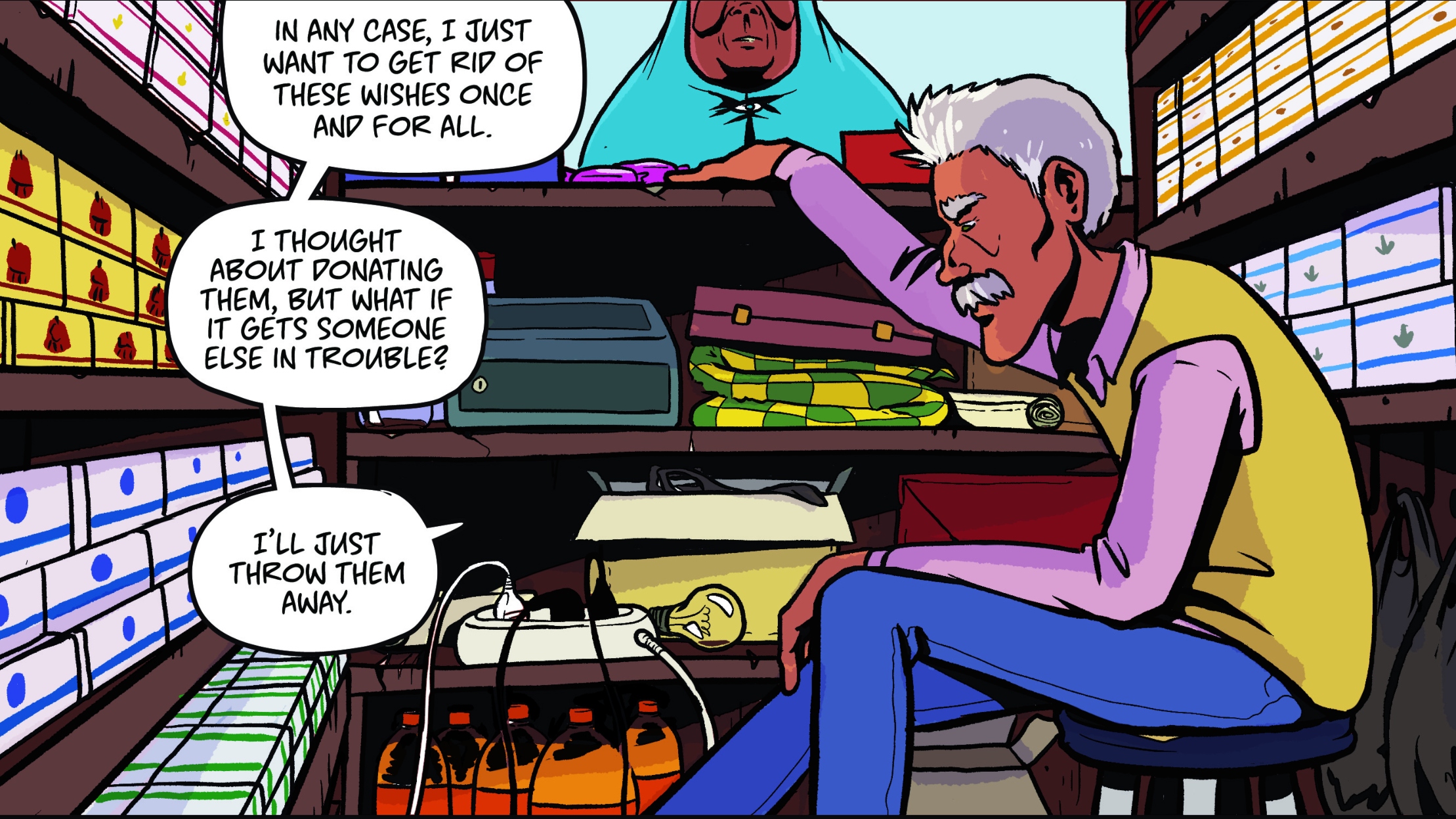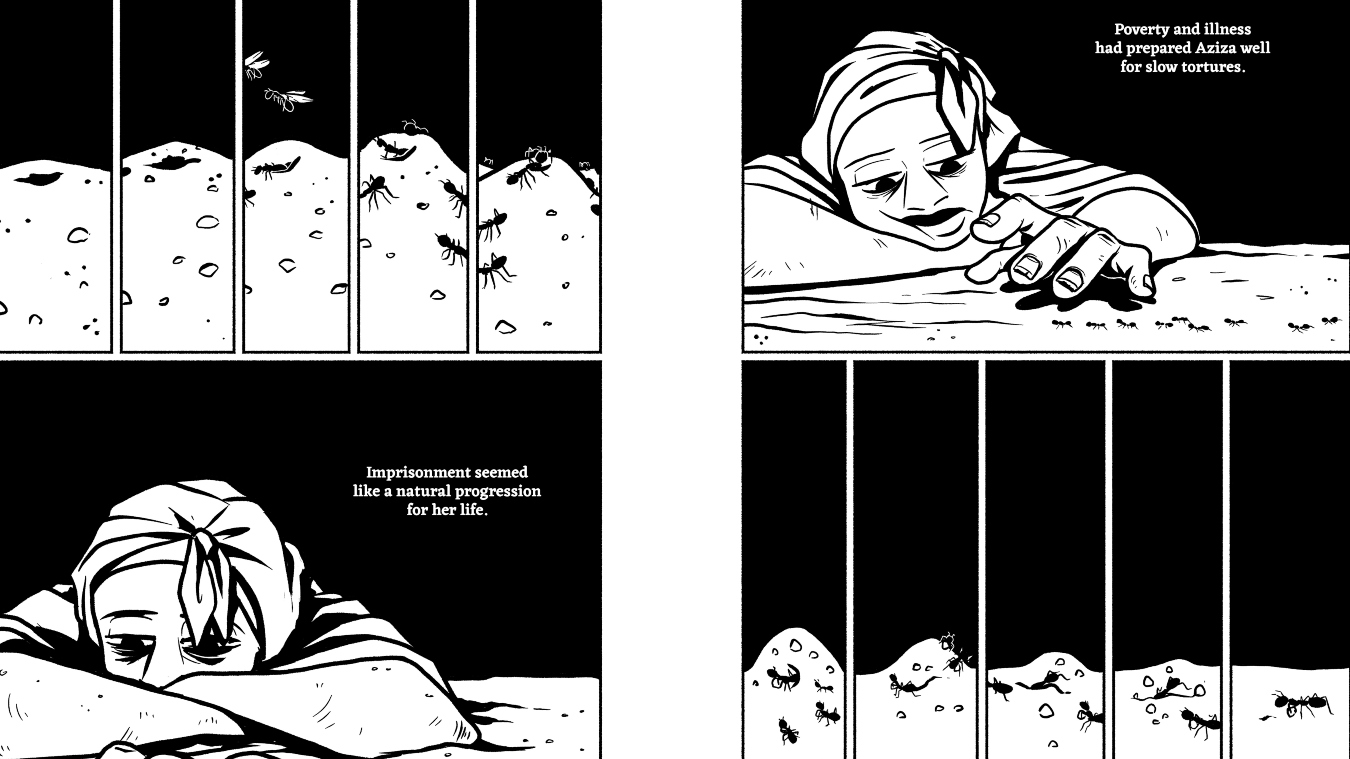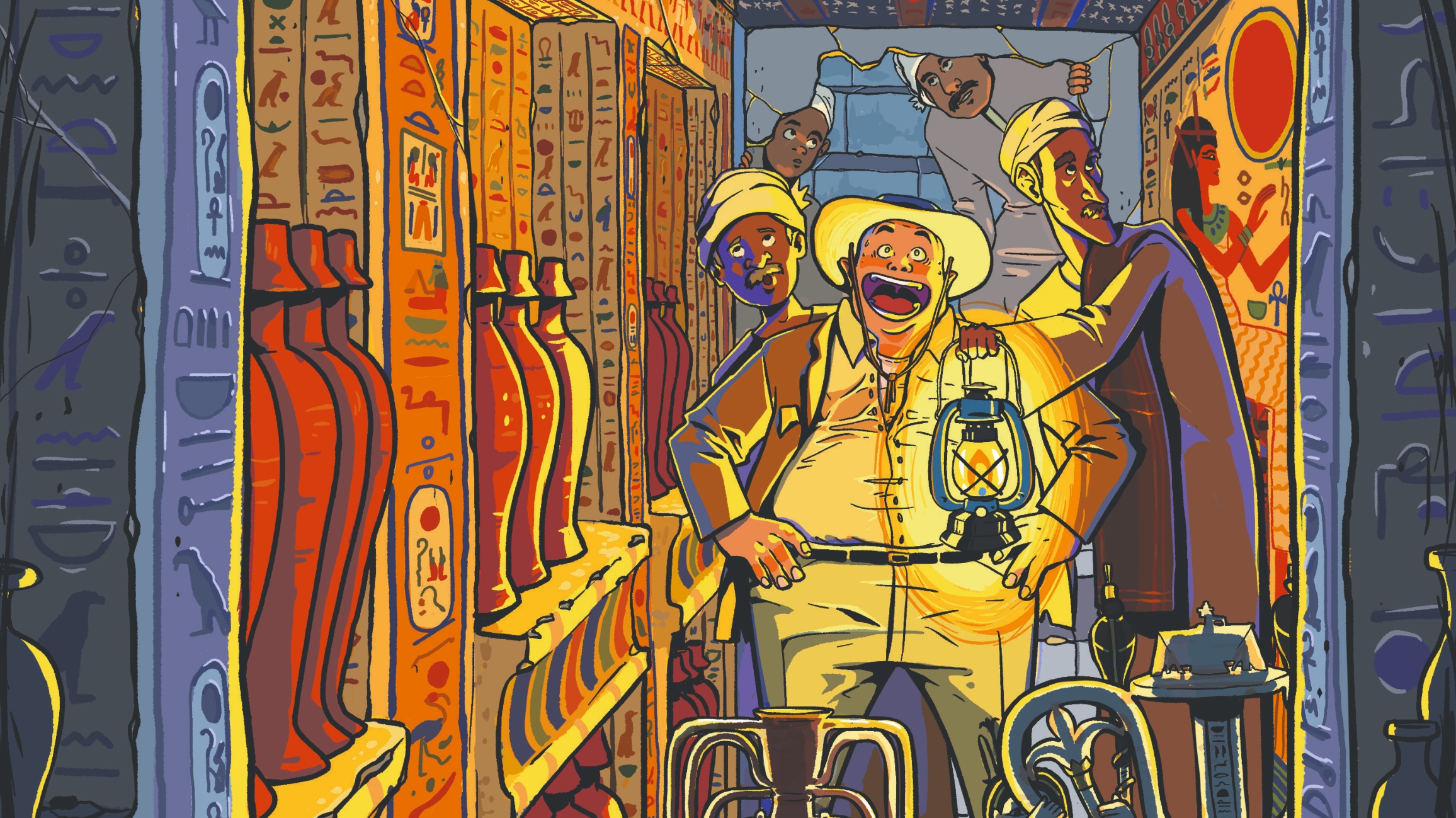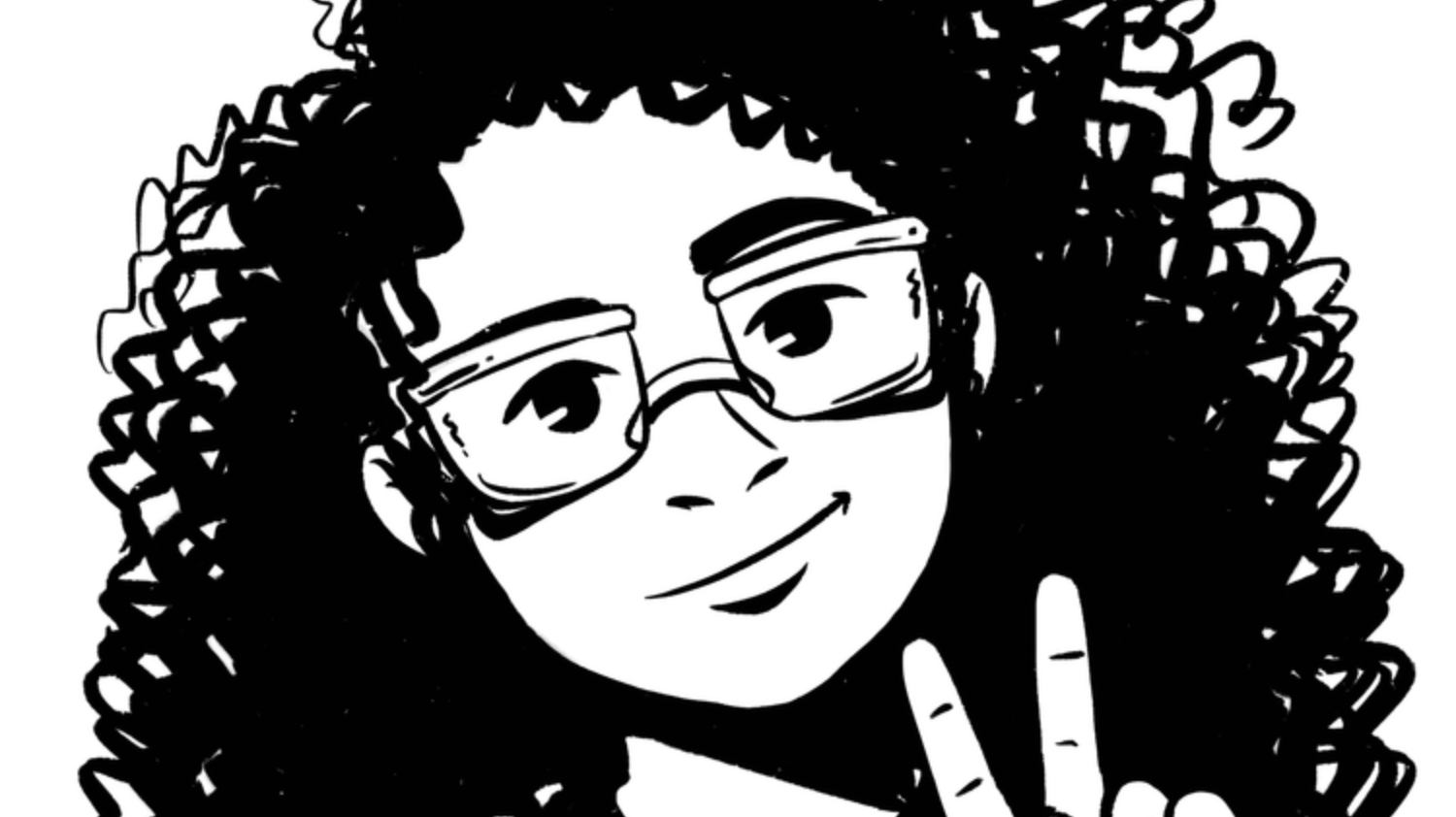Your Wish is My Command: Deena Mohamed's fantasy tale of desperate desire
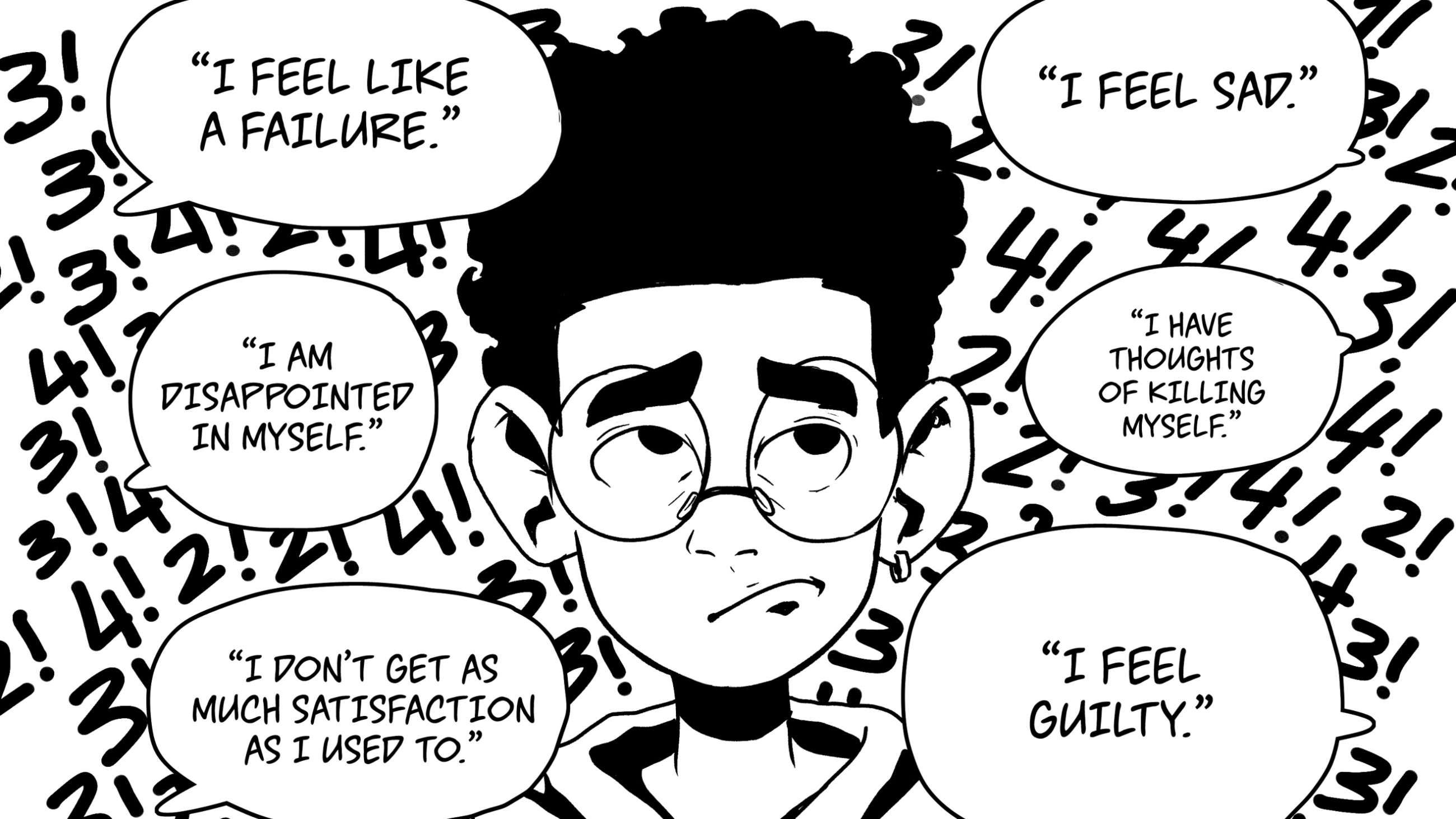
“If you had the chance to buy a wish, what would you wish for?”
The central question that this book revolves around is age-old, but continues to fascinate humankind. From Aristotle to Aladdin, desire and wish fulfilment have been central to storytelling and philosophy alike.
In the world of this enchanting graphic novel by Egyptian author, illustrator and designer Deena Mohamed (also the creator of the 2013 hijabi-superhero web comic Qahera), wishes are commodities that may be purchased.
Most people don’t dwell too long on the question. If they acquire a top-quality first-class wish, some use them to cure illnesses, genetic diseases, or to help the needy.
Others wish for better grades, exotic holidays and to improve their physical appearance.
Stay informed with MEE's newsletters
Sign up to get the latest alerts, insights and analysis, starting with Turkey Unpacked
But the main protagonists in Mohamed’s book are different - they deliberate over the question and come to surprising and profound conclusions. They consider the possibilities and the dangers.
As the professor of one of the characters warns: “the downfall of a first-class wish is getting exactly what you want. After all, who’s to say that what you want… is necessarily what you need?”
Wishful thinking and wellbeing
This reflection reaches its peak in the second section of the book, which profiles a university student named Nour.
While Nour’s rich neighbours use their pricey wishes to dream up dinosaurs and flying cars illegally, Nour, who is privileged enough to afford a first-class wish with ease, still grapples with mental health issues and a wavering sense of identity and purpose.
Despite driving a high-tech car that can vanish standstill traffic, Nour does not have it all.
Mental health amongst Generation Z especially is dealt in such a thorough and sensitive manner, this is a book that ought to be on high-school curriculums around the world.
We were lucky enough to sit down with @itsdeenasaur when she visited NYC this fall to talk about SHUBEIK LUBEIK.
— Pantheon Books (@PantheonBooks) February 9, 2023
Get Inside the Book with her here: https://t.co/xoPdbkihuK
Nour reaches for the wish bottle the way one might hope a teenager would turn to any perilous form of escapism - with extreme caution.
Being a university student majoring in the aptly titled "Wishful Thinking and Philosophies", Nour has some resources to hand, interviewing fellow students on their previous experiences with wishes, conducting extensive internet research, attempting to reach out to friends and trying two different wellbeing centres.
Through intricate speech bubbles, mood charts, and transcripts of therapist meetings, the thought process of a teenager struggling through a personal crisis is broken down.
Nour, whose brain tests every possible interpretation of the spiralling mood and inability to function on a daily basis, wonders: “But what if I wish to feel like myself again and nothing changes because this is just who I am now? What If this is just growing up?”
'The heart’s deepest desire'
Examples of privilege, wealth disparity and corruption are rife in the society in which Nour and the cast of characters that populate this book exist.
Originally published as Shubeik Lubeik in three separate volumes in Arabic that won the Grand Prize at the 2017 Cairo Comix Festival, Nour’s story is the second of three main narratives.
The first introduces us to Aziza, a widow on low income now burdened with the debt of her beloved yet slightly delusional late husband, whose greatest ambition was to own a Mercedes Benz.
The threat of her impending destitution leads her to gamble on an expensive first-class wish. Through her story, we learn that these wishes have a life of their own - and a wicked sense of humour, given that her husband squandered much of his money growing up on the now-illegal third-class wishes, only to be hoodwinked each time.
Aziza is no stranger to tragedy. Raised by ailing parents who eventually leave her orphaned, through years of hard graft she is able to raise the cost of a first-class wish, only to have it confiscated by the police who do everything in their power to intimidate and coerce her into giving it up: “Who are you kidding? A first-class wish for someone like you? Come on, now!”
Corruption, naturally, is endemic in a book with such moral high stakes. Along with the surrealist and mythical elements that underlie the story, Mohamed allows one especially idealistic aspect to enter the narrative, which reminds us that this is a work of fiction - wishes can only be used with the owner’s consent, even if confiscated by the authorities.
Aziza refuses to sell her prized wish and is left to languish in prison, allowing her even more time to consider “her heart’s deepest desire”.
Filled with regret over the way she and her husband parted in anger before his death, she too realises that sometimes the thing we need the most, is “something that cannot be bought with money”.
An ancient curse
The final chapter upturns our notions of reality even further, presenting us with a retelling of history.
Through delightful flashbacks into the distant past that demonstrate the scope of Mohamed’s artistic talent, we are shown that wishes have been around since the ancient Egyptians.
We learn that in 1960, an Italian explorer exploited his Upper Egyptian guide to essentially rob the newly discovered ancient tomb of its stash of bottled wishes.
Instead of giving the local guide a monetary reward, the crooked explorer gifts him three of the bottles, now stickered with the first-class guarantee. The gift box is handed down to his son, Shokry, the owner of a kiosk in Cairo’s Madinat Nasr district, eventually landing in the hands of Aziza and Nour.
A practising Muslim, Shokry refuses to accept the views of the contemporary religious advisers who sanction the use of wishes, preferring the condemnation of the stalwart figures of his faith instead, who claim it to be haram (religiously impermissible).
His intransigence is unsurprising, given that these wishes are commonly used for actions usually considered the realm of the divine, like curing terminal illness, and even turning back time. The concept of wishing this way in itself is suggestive of the act of supplication, except to no deity at all.
To wish or not to wish
Mohamed’s own trials in translating this book into English appear to have been handled in a much more elegant manner.
The translation, produced by the author herself, is smooth, the use of footnotes serving as an additional entry point into the story’s Arab cultural context, as well as bringing us Mohamed’s own voice as both the omniscient narrator and interpreter.
The book is even set to read from right to left, to mimic work published in Arabic.
An extraordinary, multi-talented artist whose work dives deep into the human psyche, Mohamed also expertly draws out the ills of capitalist societies that feed on our desire for instant gratification, and shows us a multitude of ways we may be harmed when we choose to follow that path.
Like much of the world's population, each of Mohamed's protagonists is suffering, through no fault of their own, from the threat of poverty, depression or disease.
Through polished panels that play with perspective, light and shade, and feature authentically portrayed Egyptian characters and landmarks, we watch as each character battles their inner demons when faced with the possibility of deliverance.
This is not a book that demonises desire. Rather, we are reminded of a universal truth: change must come from within. But also, that sometimes it’s okay to be given a helping hand.
Your Wish is My Command, by Deena Mohamed, is available from Granta Books in the UK and Pantheon in the US
Middle East Eye delivers independent and unrivalled coverage and analysis of the Middle East, North Africa and beyond. To learn more about republishing this content and the associated fees, please fill out this form. More about MEE can be found here.


